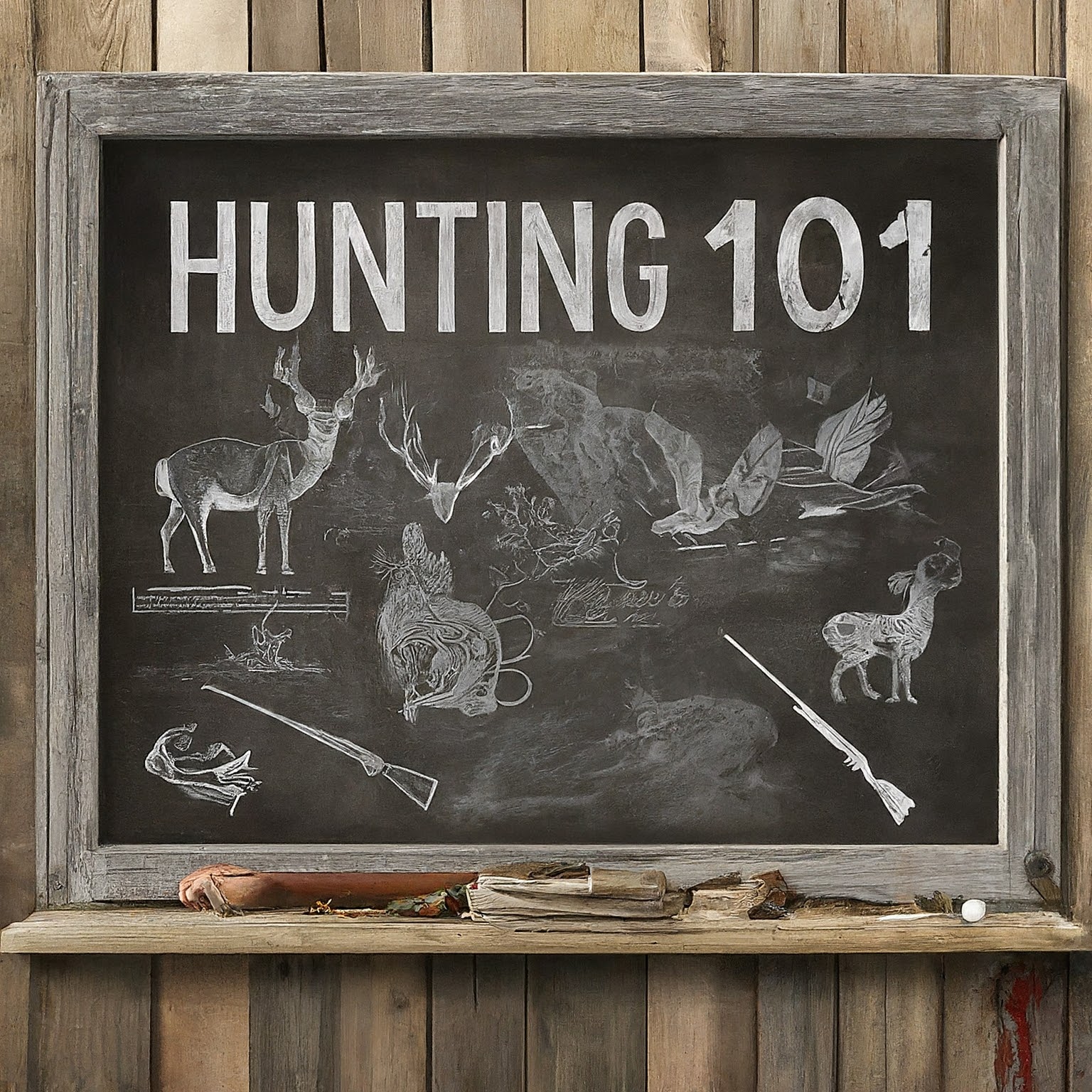Hunting 101: A Beginner’s Guide


By Derrick Stallings – HuntingOfficer.com
Safety First: Essential Rules for Hunting
Before embarking on your hunting journey, it’s crucial to prioritize safety. Here are some fundamental rules to keep in mind:
- Know Your Target: Always be absolutely certain of what you’re aiming at. Mistakes can have tragic consequences.
- Identify Beyond the Line of Sight: Never shoot at a noise or movement unless you can positively identify the target.
- Treat Every Firearm as Loaded: Handle all firearms as if they were loaded, even when you believe they are not.
- Never Point a Firearm at Anything You Don’t Intend to Shoot: This includes other people, animals, or objects.
- Keep Your Finger Off the Trigger Until Ready to Shoot: This prevents accidental discharges.
- Be Aware of Your Surroundings: Pay attention to your environment and be mindful of other hunters in the area.
- Follow All Hunting Regulations: Familiarize yourself with and strictly adhere to all hunting laws and regulations in your jurisdiction.
Essential Equipment for the Hunter
Having the right equipment is essential for a successful and safe hunting experience. Here are some key items to consider:
- Firearm: Choose a firearm that is suitable for the type of game you intend to hunt. Options include rifles, shotguns, and bows.
- Ammunition: Select ammunition that is appropriate for your firearm and the game you’re hunting.
- Hunting License and Permits: Obtain the necessary hunting licenses and permits required by your state or province.
- Hunting Clothing: Wear camouflage clothing that blends in with your surroundings. Consider layers for temperature regulation.
- Footwear: Sturdy, comfortable boots are essential for navigating various terrains.
- Hunting Backpack: A backpack can carry essential gear, including food, water, first aid supplies, and a compass.
- Hunting Knife: A hunting knife is a versatile tool for field dressing game.
- Optics: Binoculars and a spotting scope can help you locate and observe game.
- Game Calls: Depending on the type of game you’re hunting, game calls can attract animals.
Wildlife Identification: Knowing Your Target
Proper wildlife identification is crucial for ethical and legal hunting. Here are some resources to help you learn to identify different species:
- Field Guides: Consult field guides that provide detailed information on the physical characteristics, habitats, and behaviors of various wildlife species.
- Hunting Courses: Many hunting organizations offer courses that cover wildlife identification and other essential hunting skills.
- Experienced Hunters: Learn from experienced hunters who can share their knowledge and expertise.
By following these safety guidelines, equipping yourself properly, and learning to identify wildlife, you can embark on a rewarding and responsible hunting experience.
Discover more from HuntingOfficer
Subscribe to get the latest posts sent to your email.
